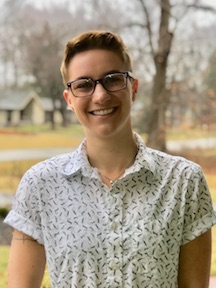By Julie Block
Phi Beta Kappas have a collective thirst for exploration—of places, ideas, cultures, and people. It’s a thirst that is impossible to fully satisfy. As member Lizzy Gering (ΦBK, DePauw, 2017) says, we will never get the honor of knowing the experiences of every person on our planet. But we are doing ourselves, and the world, an injustice if we do not try.
That is what propelled Gering into the Fulbright application process. The program is just as prestigious as the Phi Beta Kappa society, and possibly even more difficult to be accepted to, which is why it took Gering two tries before she nabbed a spot.
Originally, the DePauw University student and fluent Spanish speaker applied for an English Teaching Assistantship in Mexico. She made it to the semi-finals before being turned down. By the time an opportunity presented itself to apply for another Fulbright Teaching Assistantship grant at the Universidade Federal da Bahia in Salvador Bahia, Brazil, Gering had already been accepted to the University of Colorado for law school. Even though she had never been to Brazil and doesn’t speak a lick of Portuguese, she gave it a shot. It’s something she says she can thank her liberal arts education for— because her anthropology and Spanish majors taught her to seek out different perspectives and cultures.
“Anthropology especially started teaching me how to first acknowledge the assumptions that I make and have made my whole life, to be critical of those assumptions, and then to explore stories that break those assumptions,” Gering said. “There’s more to learning a foreign language and learning about other cultures and appreciating differences between people other than utility. Because I think it’s about empathy, it’s about connection… That potential to experience new perspectives and stories is just exponentially higher when you add Spanish or Portuguese or Italian or French or any other language.”
Gering was in the middle of her first semester of law school when she learned she had received the Fulbright grant. Immediately, she knew she was going. She would put law school on hold and spend the next year of her life in a new place, with new people, new ideologies, and a new language.
That is the beauty of being a Phi Beta Kappa—the ability to do absolutely anything you set your mind to, to be able to jump from an anthropology major at a liberal arts school to law school and then across hemispheres. Gering changed her major four times before settling on anthropology and Spanish, with an English literature minor. That doesn’t exactly scream “law school,” but her well-rounded educational experience at DePauw University prepared her to take on any task. She wanted to use the skills she’d developed in analysis and human connection to help others in her community, and she thought becoming a lawyer may help her achieve that goal.
“I thought if you want to do law you need to do political science as an undergrad or do pre-law or some kind of other track. But when I worked with a career counselor at DePauw and I said that, she said no, no. Stop it right there. Any undergrad degree can go on to a J.D.,” Gering recalled. “[Law school] is all reading and some writing and a lot of analyzing. So anthropology and English definitely prepared me for all the reading and analyzing and exposure to different viewpoints.”
Gering frequently says the top three things she wants to do with her life are travel, learn new languages, and meet new people. Moving from Indiana to Colorado, she was able to do two of those things. But in Brazil, she says, she will get to do all three—to the most extreme extent she can think of.
She’s not prepared. However, she says that is okay. One of the most important lessons she learned through her liberal arts education was that there is so much she doesn’t know. Through classroom discussions, outside conversations with professors, and interactions with fellow students, she says she came to understand that there is a lot she does not understand. And that knowledge in and of itself, she observes, is more powerful than anything she could have learned in a big lecture hall.
“It’s really hard to work on accepting being wrong, but both inside and outside of the classroom at DePauw, I had plenty of experience being wrong,” she said. “Because of DePauw, I know what it’s like to feel uncomfortable and to feel like I don’t know anything, and to kind of embrace that discomfort and put work in on myself to get through it. So I guess DePauw has prepared me by showing me that it’s okay to feel unprepared and that it takes work to get through that, but it’s possible.”
Lizzy Gering hopes her experience in Brazil will allow her to close this gap in her knowledge and return to law school in a year feeling more prepared than ever. Like many Phi Beta Kappas, she is taking advantage of every opportunity she sees to seek out new perspectives and use them to alter her view of the world. Indeed, she explains, we are doing ourselves, and the world, an injustice if we do not try to learn about others. What better way to return to the fight for justice than with the knowledge of another culture, another language, and another way of life? It seems only fitting.
Julie Block graduated Phi Beta Kappa from DePauw University in 2017. She earned a Bachelor of Arts degree in English Writing and currently works as an Associate Producer at FOX59 News. DePauw University is home to the Alpha of Indiana Chapter of Phi Beta Kappa.




